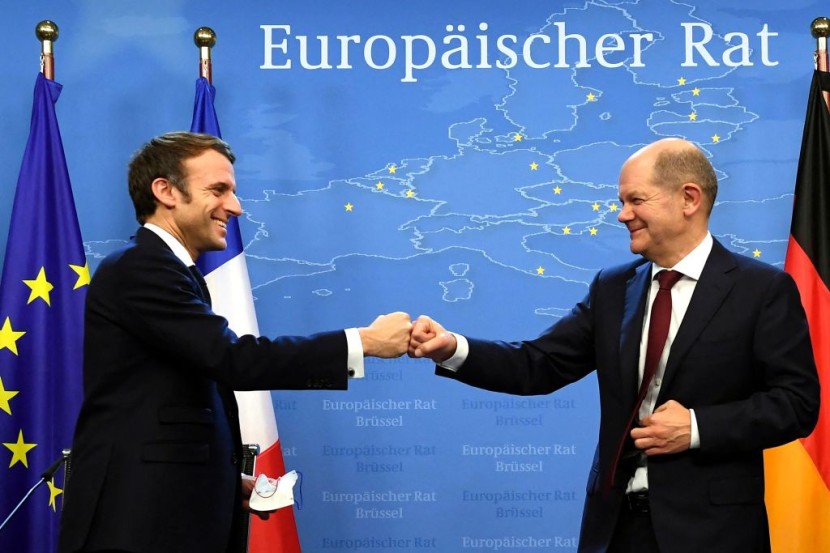
France and Germany are in hot water for not including easing out Ukraine in talks with Moscow, prompting accusations of fronting an EU plan in their favor.
Prior to this, the US and Russia assumed a cold war arrangement that excluded Brussels from a seat at the table. Financial Times journalist Henry Foy disagrees that Ukraine is an outsider in determining the nation's direction.
Normandy Format meeting held without Ukraine
Germany is trying for a diplomatic solution to the standoff, with Chancellor Olaf Scholz's adviser meeting with counterparts from France and Russia this week. However, without Ukraine at the bench, reported the Express UK.
Foy posted on social media what he thought of the plan, and he called what France and Germany entered a Normandy Format meeting. Moscow is the third party to decide on the fate of the border, with the lack of Kiev representation being most lamentable.
Also, the move will allow bigger countries to determine the destiny of smaller ones, based on the number of tanks and military power, not the GDP.
The Normandy Format refers to negotiations involving Russia, Ukraine, France, and Germany to end the eight-year-old conflict.
The German government spokesperson, Steffen Hebestreit, has also refused to confirm the information of a possible meeting between Mr. Scholz and Russian President Vladimir Putin, although Bild stated that the two leaders would convene this month cited Brinkwire. He told the press that Jens Plotner, an adviser to the German Chancellor, is scheduled for a meeting this week. This eased out Ukraine in the attempts to have a better position.
Dialogues at NATO
Nevertheless, last Tuesday, the White House released transcripts of a call between US President Joe Biden and Ukrainian President Volodymyr Zelensky, raising doubts regarding Paris and Berlin's judgment.
According to a White House statement, the president underlined the adherence of the United States and its allies and partners to the principle of not excluding important parties. Washington gave Kiev a rock-hard commitment to act if Russia invaded Ukraine.
Both leaders are also said to have expressed support for diplomatic endeavors that are set to begin next week with a bilateral Strategic Stability Dialogue at NATO by the NATO-Russia Council and the Organization for Security and Cooperation in Europe, noted Radio Free Europe.
Zelensky declared at such a press conference last December, indicated Ukraine was ready for discussions in the Normandy Format. He said that Kiev wants sanctions on Moscow to happen before more tensions arise.
While France's and Germany's leaders sought to resume dialogue with Moscow despite keeping pressure on the Kremlin to prevent what the West suspects were rehearsals for a new attack on Ukrainian territory.
On the fringes of an EU summit in Brussels, French President Macron, Scholz, and Zelensky sat down and discussed ways to revive discussions in the Normandy Format.
Upwards of 100,000 Russian troops and weapons and armored vehicles have been amassed across the Ukraine borders.
Anne Applebaum mentions in an article that warns that US Secretary of State Antony Blinken is pre-empting an invasion by warning NATO, although Kiev is not as alarmed.
Another development is that Finland is thinking of joining NATO against a warning of NATO expansion. Foy is worried about how talks can be held if Ukraine participates in both NATO and the US are jockeying to have a better position if the time comes.
© 2026 HNGN, All rights reserved. Do not reproduce without permission.








